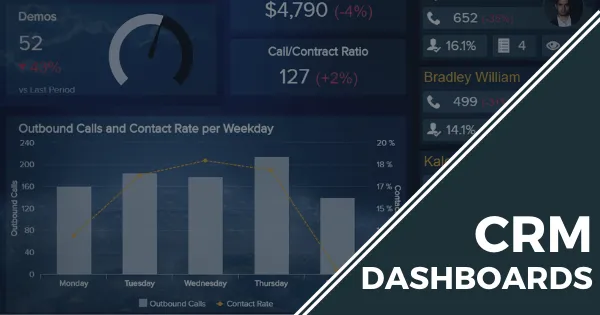Understanding CRM Analytics: A Guide to Measuring Sales Performance
Introduction
As a business owner or sales manager, it’s crucial to understand your sales performance and identify areas for improvement. CRM (Customer Relationship Management) analytics provides valuable insights into customer behavior, sales trends, and team performance. In this guide, we’ll explore the importance of CRM analytics, key metrics, KPIs, and dashboards to help you make data-driven decisions.
What is CRM Analytics?
CRM analytics is a process that involves collecting, analyzing, and interpreting data from various sources within your CRM system. This data includes customer interactions, sales transactions, marketing campaigns, and more. By analyzing this data, you can gain valuable insights into customer behavior, preferences, and pain points.
Key Metrics for Sales Performance
To measure sales performance effectively, it’s essential to track key metrics such as:
- Lead conversion rates
- Sales cycle length
- Average deal size
- Customer acquisition cost
- Customer lifetime value
- Sales team productivity
These metrics provide a comprehensive view of your sales performance and help you identify areas for improvement.
KPIs for CRM Analytics
Key Performance Indicators (KPIs) are essential for tracking progress toward your business goals. Some common KPIs for CRM analytics include:
- Sales revenue growth
- Customer retention rate
- Average order value
- Sales team efficiency
- Conversion rates from leads to customers
Dashboards for Data Visualization
Dashboards are an effective way to visualize data and track key metrics and KPIs. A well-designed dashboard should provide real-time insights into your sales performance, customer behavior, and team productivity.
Conclusion
CRM analytics is a powerful tool for measuring sales performance and making data-driven decisions. By understanding key metrics, KPIs, and dashboards, you can gain valuable insights into customer behavior, preferences, and pain points. With this guide, you’re equipped to start analyzing your CRM data and optimizing your sales strategy for better results.

Visualizing CRM analytics with a dashboard

Fundamentals of CRM with Dynamics 365 and Power Platform

Marketing Automation For Dummies

Successful Direct Marketing Methods: Interactive, Database, and Customer-based Marketing for Digital Age (BUSINESS BOOKS)

CRM & FFHH: analysis of real accidents

Connected CRM: Implementing a Data–Driven, Customer–Centric Business Strategy

Special Edition Using Microsoft CRM
Related Guides: See all
- AI-Powered CRM: Supercharging Customer Relationships with Intelligent Automation and Predictive Insights in 2024
- Omnichannel Engagement with CRM: Crafting Seamless Customer Journeys in 2024
- Personalization Powerhouse: How CRM Drives Customer-Centric Experiences in 2024
- Customer Segmentation Mastery with CRM: Unlock Personalized Marketing and Sales Strategies in 2024
- Mastering the Customer Journey with CRM: Elevate Experiences and Boost Loyalty in 2024
- Social CRM: Building Stronger Customer Relationships Through Social Media in 2024
- Cloud CRM: Revolutionizing Business Agility and Scalability in 2024
- Mobile CRM: Empowering Sales and Service Teams on the Go in 2024
- CRM Integration and API: Unifying Your Business Ecosystem for Seamless Operations in 2024
- Data-Driven Decisions with CRM: Harness the Power of Reporting and Dashboards in 2024